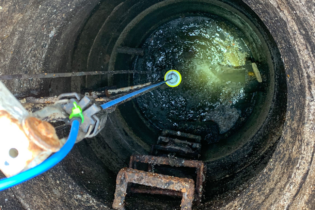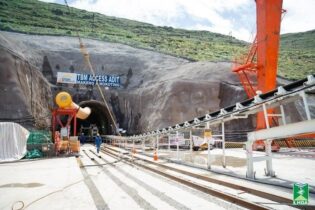Headed by directors Hugh Feely and Petrus van Straten, Pilecon Geotechnical Contractors provides solutions nationwide, backed by its technical team and piling fleet. Projects range from high-rise buildings to interchanges, with major new work in the pipeline.
The formation of Pilecon is thanks to Feely and Van Straten’s entrepreneurial vision to offer a value-added geotechnical service to the South African market. A qualified geologist, Feely’s earlier consulting experience – gained working for companies like Drennan Maud, Golder Associates and Schwartz Tromp – subsequently led to his entry into the contracting space in 1992. He managed the piling divisions of Jacked Pipelines/WK Construction, Saudi Arabia-based company Aject, and Geopractica Contracting. Then in January 2018, Pilecon was formed. Van Straten holds a BSc (Hons) Applied Sciences – Geotechnical Engineering and PR Tech Eng registration. Prior to forming consulting firm Geo Simplicity Geotechnical Engineering, Van Straten was with Dura Piling and then managing director of Stefanutti Stocks Geotechnical. He joined Pilecon as a director in March 2020. Pilecon and Geo Simplicity work together to provide a turnkey ‘geotechnical onestop shop’ for their clients. A Level 4 BBBEE company, Pilecon employs dedicated rig operators and foremen with years of experience in the art of completing geotechnical installations in varied and difficult ground conditions.Milestone & current projects
“Every project is unique in terms of the underlying geology, groundwater and soil conditions, with the site footprint and future structure adding to the complexities of devising the optimum pile design,” Feely explains. “The following past and present projects provide working examples of our value engineering solutions.”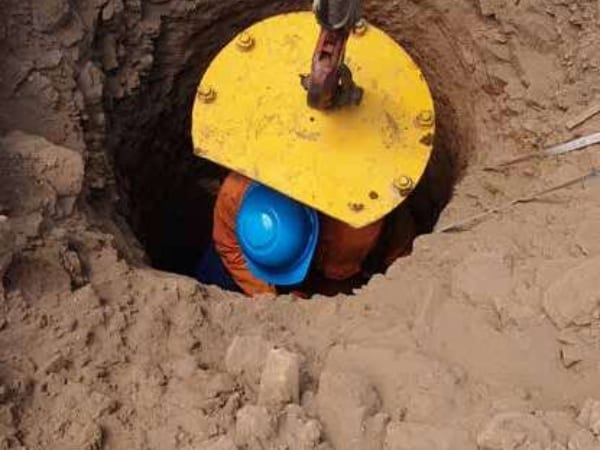
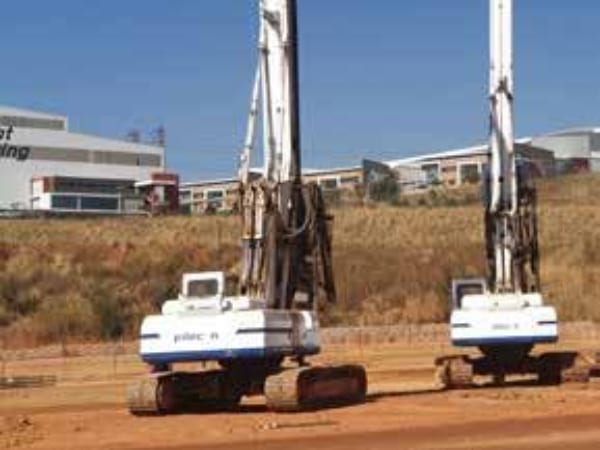
Commercial projects
ArcelorMittal Vanderbijlpark Works The new Coke Ovens By-product Plant at Vanderbijlpark is located within the ArcelorMittal plant and is underlain by dolerite and sandstone bedrock with a thick mantle of saturated residual soils not suitable for conventional shallow foundations. A piled solution was recommended and Pilecon was awarded the contract to install 650 no. temporary cased 600 mm diameter auger cast in situ piles to depths of up to15 m for the various structures. In certain areas, existing overhead structures precluded the use of large auger rigs, which resulted in the pile design being altered to incorporate groups of micro-piles using Pilecon’s Comacchio MC 800 rig in rotary percussion drilling mode to install
203 mm diameter piles. Komatsu Reman Plant Edenvale Piling for the new Reman Plant at the Komatsu Edenvale site was only specified after the main contractor, Abbeydale Construction, had already started with excavation of pad footings. Pilecon was required to install 199 no.13 m deep, 600 mm diameter piles within the excavations in as short a time as possible, so as to claw back delays in the construction programme. Two Soilmec rigs were put on-site and the piling was completed within 12 days to the complete satisfaction of the client. Corkwood Shopping Centre, Uitenhage The geology of the Uitenhage area is complex and particularly so in the area adjacent to the VW plant at the site of the new Corkwood Shopping Centre. The geotechnical report compiled by Geo Simplicity informed the design of the piling to the basement parking portion of the centre. Pilecon is in the process of installing 250 no. piles ranging from 450 mm to 750 mm in diameter, to depths of up to 11 m, penetrating bouldery alluvium and mudstones of the Kirkwood geological formation.
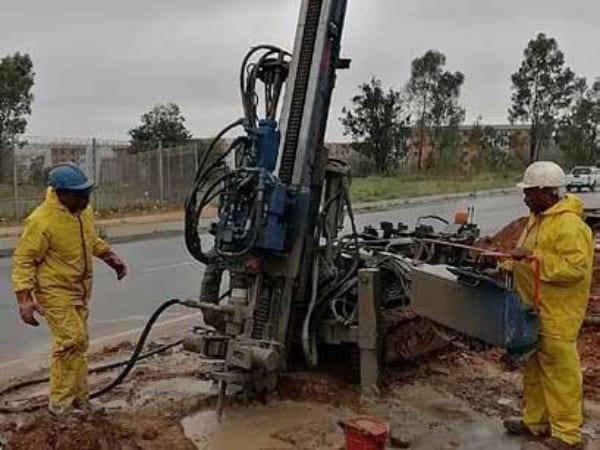
Micro-piling for specialised structures
City Power Monopole Foundations The Fleurhof Roodepoort electrical reticulation for overhead high-voltage lines required tall monopoles to be erected in confined spaces. Therefore, conventional large concrete foundation bases could not be used for the pole foundations. An alternative design was implemented using SDA piles. Pilecon was appointed by electrical contractors Tshwalec to install the piles. Up to 26 no. SDA piles per base were required to anchor the foundations of four monopoles. The SDA technique uses a sacrificial hollowstem drill rod and drill bit to install the anchor, which is then grouted solid into the soils and rock beneath the monopole base. The SDAs support the compressive and tension loads imposed by the monopole over a very small plan area. Chicken Licken at The Grove, Nelspruit An existing restaurant situated at the top of a 6 m high retaining block wall was to be converted to a Chicken Licken outlet with a drive-through between the building and the edge of the retaining wall. The extension for the drive-through left a 2.5 m corridor for the installation of piles to carry the structural loads. Pilecon’s Hutte HBR 203 mini-rig was used to install SDA micro-pile groups along the narrow corridor. The Hutte rig has an independent power pack, which stands 30 m away from the drill rig and allows for entry into very tight spaces for pile installation. Bokomo Silos, Gaborone Two new, 20 m high storage silos were required at Bokomo Gaborone. The residual granite soils beneath the site have a high water table and overlie an undulating bedrock surface. SDA-type piles were chosen for ease of installation, eliminating the need to install temporary casings. Using the Hutte rig with a top drive percussion hammer, Pilecon installed the 36 no. piles required in a total of three days. “We have the flexibility to tackle projects of any size or complexity within South Africa and cross-border, working with the client and professional team to engineer the optimum foundation and support solutions,” Feely concludes.




